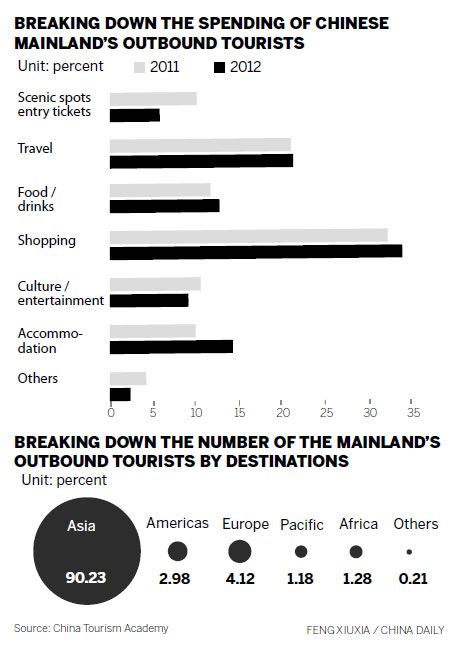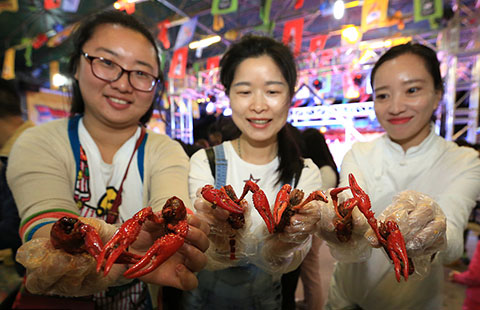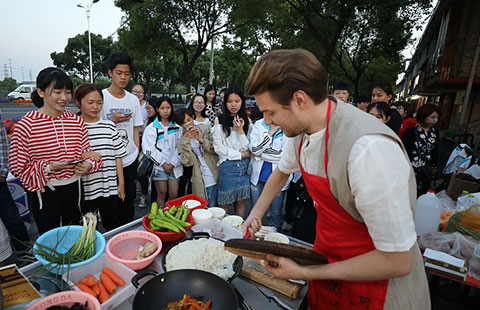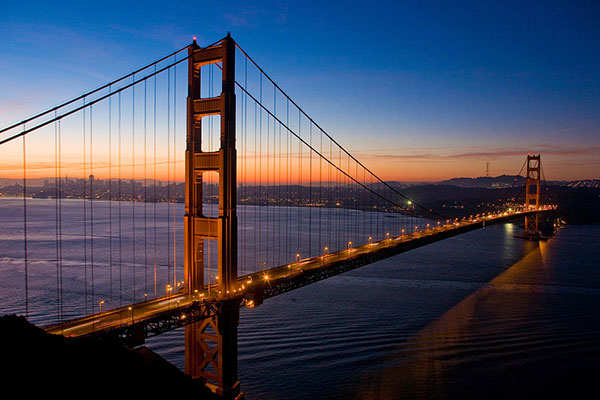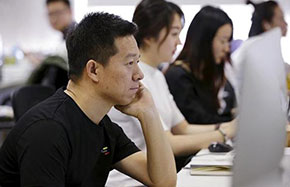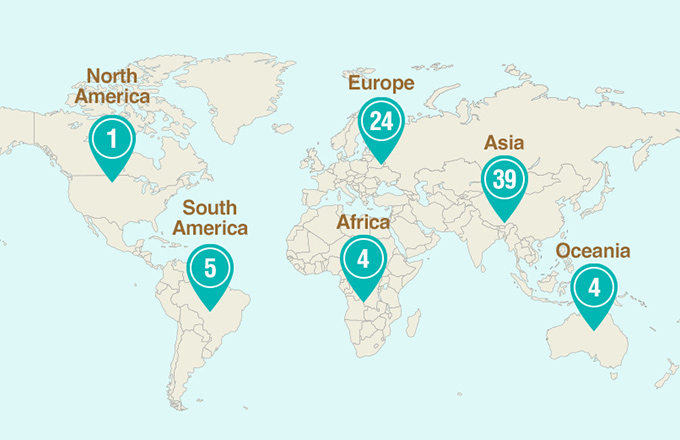New outbound tourism habit
|
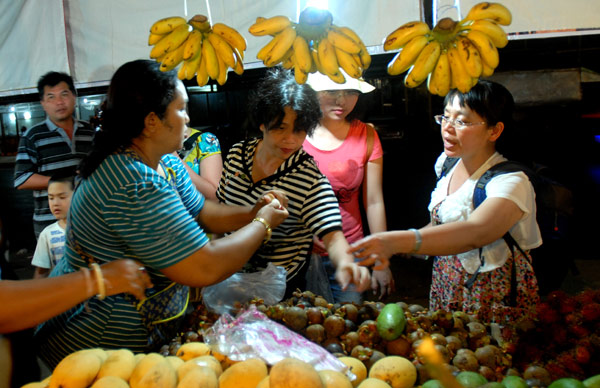 Chinese travelers buying fruit in Phuket, Thailand. According to the Annual Report of China Outbound Tourism Development 2013, the percentage of Chinese travelers who spent more than 5,000 yuan ($816) on their outbound trip was lower in 2012 than in 2011. [Photo/Provided to China Daily]
|
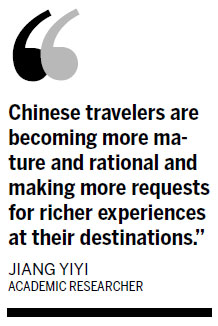
Number of visits by Chinese see a year-on-year rise of 18.41 percent
In her fifth visit to Hong Kong, Wang Ting, a 25-year old from northwestern China, spent a five-day holiday in April in a room with an ocean view in a luxury hotel.
The cost of the accommodation was nearly 20,000 yuan ($3,264). She spent only half of that on shopping.
"I've been here many times. I know what I want," she said. But Wang's aunt, who arrived in Hong Kong one week later, refused to stay at the same hotel.
"The room rates are too high and all I need is a bed to sleep in," said the 42-year-old. But she is not price sensitive when it comes to shopping. She bought two luxury watches, three branded handbags and some jewelry.
The two mirror the changing behavior of Chinese outbound travelers. An increasing number behave more prudently when buying overseas, accounting for a sharp decline in the purchase of high-end products, a recent survey found.
According to the Annual Report of China Outbound Tourism Development 2013, the percentage of Chinese travelers who spent more than 5,000 yuan on their outbound trip was lower in 2012 than in 2011.
The highest amount is still spent on shopping, at 34.1 percent, followed by transportation at 21.6 percent, showed the report conducted by the China Tourism Academy.
Dai Bin, head of the academy, said a small number of luxury items purchased by Chinese outbound travelers often overshadows the fact that most Chinese tourists going abroad choose to stay at cheaper hotels in the suburbs and spend sparsely on dining so they can spend more on shopping.
For example, in the United States, although shopping still tops the spending of Chinese travelers, the percentage who regard shopping as their primary purpose has dropped 6.8 percentage points compared with that of a year ago. Meanwhile, spending on leisure and entertainment has risen 5 percentage points, the report revealed.
US tourism officials are trying to change the habits of Chinese travelers.
"We are trying to persuade them to spend more on accommodation," said Lynn Carpenter, vice-president of marketing at the California Travel and Tourism Commission.
She said almost all of the expenditure of Chinese travelers to California went on shopping, unlike other travelers.
The average expenditure of each Chinese traveler in the state was $2,900 in 2011, which is the highest among all the foreign travelers to the state, she said.
"But the situation is changing, especially among those who came for a second time," Carpenter said.
